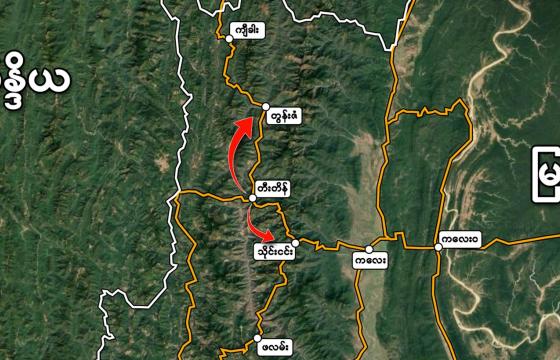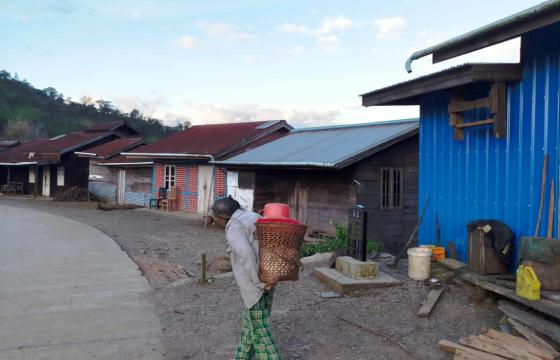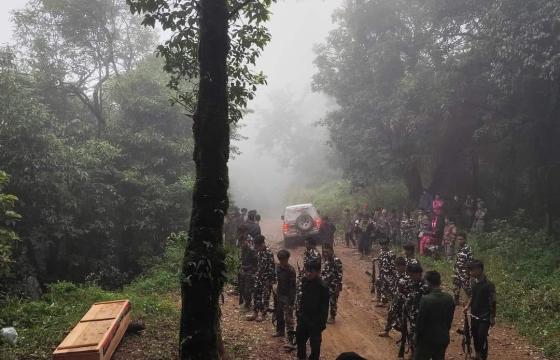Chin refugees in Malaysia who were due to go to the United States (US) because their refugee applications had been approved had their flights and visas cancelled by Donald Trump, the new US president.
After his inauguration as US president on 20 January 2025, Donald Trump signed an executive order suspending the U.S. Refugee Admissions Program (USRAP) as of 27 January 2025. This means that many refugees who had been granted asylum in the US and were due to soon enter the US, such as the Chin refugees in Malaysia, cannot now go there.
James Bawi Thang Bik, the chairman of the Alliance of Chin Refugees (ACR), a coalition of 17 ethnic groups working to improve the lives of Chin refugees in Malaysia said: “Many who had high hopes were dealt a crushing blow. I can sympathise with how deeply hurt they must feel. A friend of mine was in the shower, preparing to visit a United Nations (UN) agency office for the final steps of his journey to the United States, when the news of the cancellation reached him. Some, believing their trip was secure, had already returned their rented homes to landlords and quit their jobs. In such a situation, this devastating turn of events leaves everyone heartbroken.”
Many of the Chin refugees in Malaysia who had just had their asylum applications for the US recently approved face having those approvals suspended and their flights to the US cancelled.
Many who had their flights to the US cancelled contacted ACR when they received notification of their flight cancellation, whilst others contacted the United Nations High Commissioner for Refugees (UNHCR) office. The number of Chin refugees who have had their flights cancelled is still unknown, according to James Bawi Thang Bik.
Previously, Chin refugees in Malaysia applied for asylum in the United States through two main channels: the UNHCR's refugee resettlement programme and the Welcome Corps programme, which enabled Chin individuals to join family members already in the United States. However, under Trump's order, all applications for entry through both programs were revoked.
Now, the Welcome Corps has stopped accepting new asylum applications and the Resettlement Support Centre (RSC), an organisation that assists migrants, has cancelled interview appointments for Chin people applying for asylum in the US.
James Bawi Thang Bik said: “The RSC has cancelled interview appointments. So many people have been affected by the United States’ policy shift. Everyone is in shock and deeply depressed. The chances of any change we can hope for seem very slim. It's clear that there is an overwhelming silence amongst the Chin community in Malaysia these days.”
The US is the country that accepts the largest number of Chin refugees. Other countries like France and Australia also offer Chin people asylum, though in relatively smaller numbers.
Currently there are about 80,000 Chin refugees in Malaysia. Of those, 20,000 hold a UN Refugee Card which is issued by the UNHCR (United Nations High Commissioner for Refugees) and internationally identifies the holder as a refugee.
The Malaysian authorities are currently making a large effort to detain refugees. Whilst the authorities usually release refugees in possession of a UN Refugee Card, on some occasions they have repatriated UN Refugee Card holders back to their country of origin, according to several Chin people now living in Malaysia.
James Bawi Thang Bik pointed out that denying Chin refugees entry to the US will lead to more Chin refugees in Malaysia.
He said: “Let's consider what will happen next: the number of Chin refugees stranded in Malaysia will continue to rise. Many of them are not eligible to return home, nor can they leave for the United States as asylum seekers. They will be stuck, forced to have lives of struggle under the constant threat of being hunted down by authorities.”
Some of the Chin refugees whose asylum permissions were suspended first applied for asylum as far back as 2013, though others had applied more recently in 2019, 2020 and 2021. They included orphaned children, people with underlying health conditions and elderly people.
Trump’s executive order suspending the U.S. Refugee Admissions Program (USRAP) has affected refugees from around the world, not just those from Myanmar.
The USRAP will be suspended from 27 January 2025.
Under the new regulations “Refugees may be admitted to the United States on a case-by-case basis, once the secretary of state and secretary of homeland security jointly determine that the entry of such aliens as refugees is “in the national interest and does not pose a threat to the security or welfare of the United States.” Within ninety days of January 20, 2025, the secretary of homeland security will submit a report regarding whether or not it would be in the interests of the United States to resume allowing refugees to enter the United States. These reports will continue every ninety days until the USRAP program is resumed,” according to the National Law Review website.







